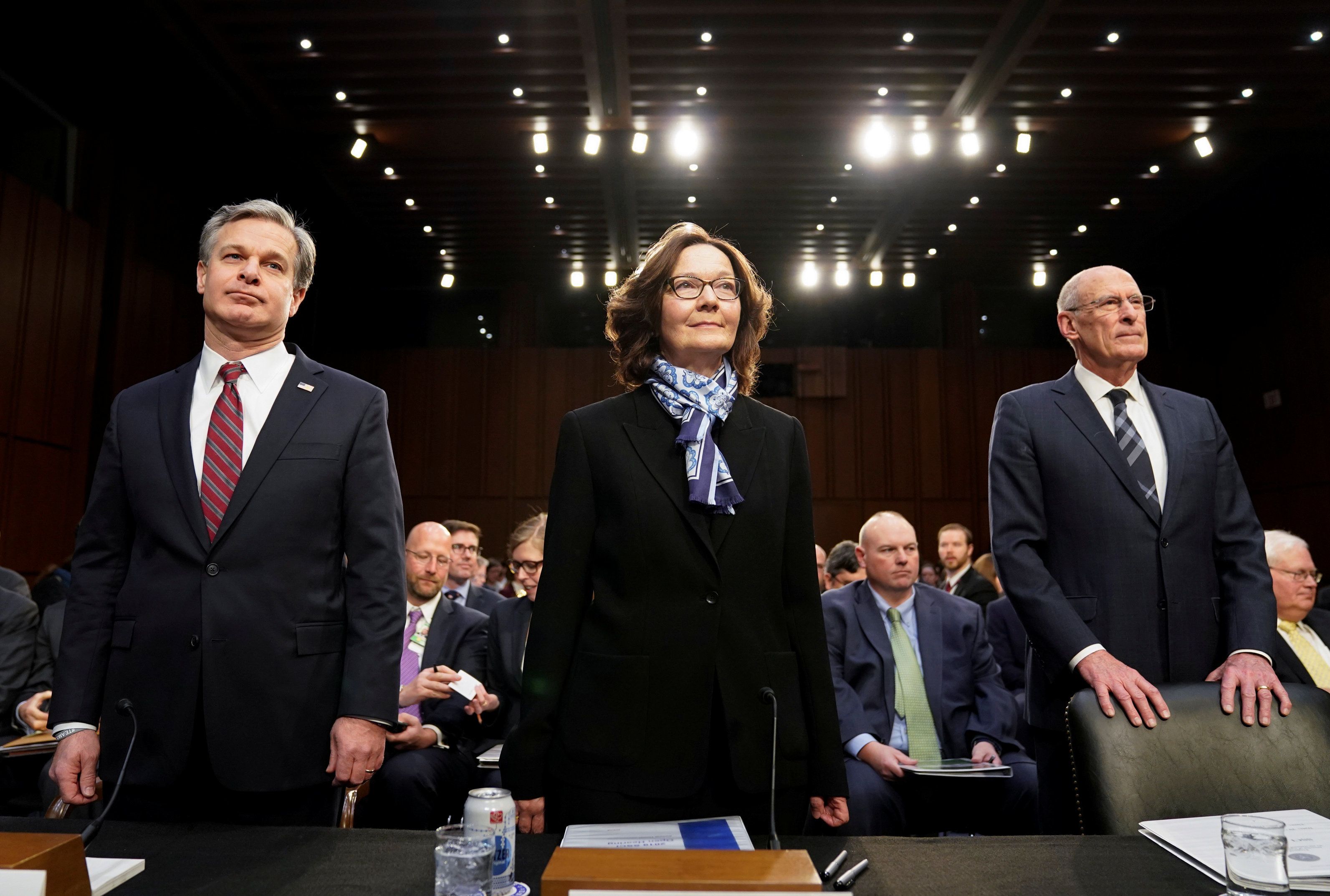February 01, 2019
As we noted in the Wednesday edition, the US intelligence community has released its latest Worldwide Threat Assessment. Much of the media focus this week has fallen on President Trump's criticism of the US intel chiefs, but let's begin with the report itself. Here are its key findings:
- The Trump administration's trade policies have damaged US interests by pushing allies to build new relationships with other governments.
- "At present, China and Russia pose the greatest espionage and cyber attack threats."
- ISIS isn't finished. The group can still call on thousands of fighters in Iraq and Syria, as well as a dozen networks around the world.
- "Climate hazards such as extreme weather, higher temperatures, droughts, floods, wildfires, storms, sea level rise, soil degradation, and acidifying oceans are intensifying, threatening infrastructure, health, and water and food security."
- North Korea "is unlikely to completely give up its nuclear weapons and production capability." Following Kim Jong-un's meeting last year with President Trump in Singapore, North Korea has continued nuclear development in some areas and taken actions that are reversible in others. CIA Director Gina Haspel testified before Congress on Tuesday that North Korea "is committed to developing a long-range nuclear-armed missile that would pose a direct threat to the United States."
- Iran continues to support terrorist groups in the Middle East and Europe, but it's still complying with the terms of the nuclear deal even after the US withdrew from the agreement and re-imposed sanctions. Director of National Intelligence Dan Coats told Congress this week that "We do not believe Iran is currently undertaking activities we judge necessary to produce a nuclear device."
And now to the controversy. President Trump, who has made statements in the past that contradict every one of these findings, was not pleased with the assessment, particularly on the subject of Iran. "The Intelligence people seem to be extremely passive and naive when it comes to the dangers of Iran. They are wrong! When I became President Iran was making trouble all over the Middle East, and beyond," he tweeted on Wednesday.
If you want to know how a particular government weighs threats to national security, don't look to politicians. They have their own motives for stressing this or that threat. Look to intelligence professionals who were there before a particular president or prime minister arrived and will be there after they're gone. US intelligence has been (sometimes dangerously) wrong over the years, but the experience of its people and their extraordinary access to information make it unwise to dismiss their judgment.
And it's alarming to see the president of the United States, whom the US Constitution designates as Commander in Chief of the military, publicly deriding the integrity of the nation's intelligence agencies. This week, your Friday author is in Japan, one of several US allies where officials are watching with serious concern. It's also noteworthy that a clear majority of Republican senators voted this week to support a measure declaring that the Islamic State and al-Qaeda remain serious threats in Syria and Afghanistan, a rare rebuke for the president by lawmakers from his own party.
Related Articles Around the Web
More For You
What We’re Watching: US critical minerals summit, Rafah crossing reopens, Border violence in Pakistan
Feb 02, 2026
U.S. President Donald Trump and Japanese Prime Minister Sanae Takaichi hold up signed documents regarding securing the supply of critical minerals and rare earths, at a bilateral meeting at Akasaka Palace in Tokyo, Japan, October 28, 2025.
REUTERS/Evelyn Hockstein
Representatives from the European Union, United Kingdom, Japan, and others will meet in Washington this week to discuss a strategic alliance on critical minerals.
Most Popular
A flood victim stands at her flooded home after weeks of heavy rainfall in Boane District, Maputo, Mozambique, January 19, 2026.
REUTERS/Amilton Neves/File Photo
392,000: The estimated number of people displaced across Mozambique by recent rain-induced floods. Severe flooding in the southern African nation, as well as in South Africa and Zimbabwe, has killed over 100 people.
Costa Rica presidential candidate Laura Fernandez of the Sovereign People's Party (PPSO) addresses supporters during her closing campaign rally, ahead of the February 1 general election, in Heredia, Costa Rica, January 29, 2026.
REUTERS/Mayela Lopez
In yet another Latin American election shaped by concerns about security and violence, Costa Ricans will vote for president this Sunday.
© 2025 GZERO Media. All Rights Reserved | A Eurasia Group media company.
